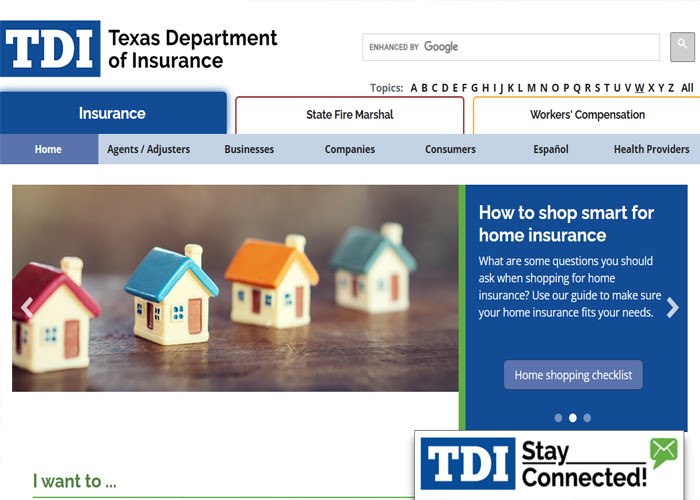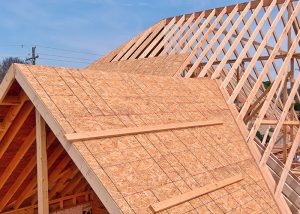Use a Bonded Roofer: A Houston Owner’s Best Practice
By Shantell Moya · 7 months ago · 11 min read

You can see how a half-finished roof can turn a harmless rain squall into a wet nightmare. The second those Gulf clouds burst, water sneaks through the missing shingles and turns your living-room carpet into a soggy mess. Panic kicks in fast. No one wants that mess. Say you wake to dry floors instead of a puddle on the rug.
An easy surety bond can stop that drama before it starts. Houston weather swings from hurricane gusts to hail showers while high insurance deductibles squeeze every roof project.
Crews from out of state chase storms and then walk away without finishing your job. A bond gives you a money backstop to wrap up the work or cover any damage. When a roof replacement costs ten thousand dollars or more, you’ll see that a bond pays for itself. You can check a roofer’s bond in minutes to lock in good protection.
You’ll find the bond details on your state contractor board’s website, or you can ask your roofer for the policy number. Why wait to discover surprise bills down the road? Even if a bond looks like more paperwork, it still becomes your shield when those Gulf storms roll in.
Get one now and keep your repairs on track.
How Surety Coverage Protects Homeowners
A surety bond means that you don’t even have to pick up the tab if your roofer vanishes or delivers low-quality work. A roofing bond makes the surety company cover repair costs up to its limit, and that’s real protection for homeowners.
Roof replacements in Houston cost about $15,000 to $25,000. Most roofing bonds cover $10,000 to $50,000 in damages. Ask yourself – could you afford to pay twice for your roof if something goes wrong? Probably not. That’s a hefty bill to risk doubling.
A Houston family had that problem when their roofer went bankrupt midway through. Materials sat unused in their yard for weeks. Because they had hired a bonded contractor, the surety company paid another roofer to finish the job.
The warranties from manufacturers only cover the materials, not the labor fees that make up most of your bill. Don’t rely on a warranty alone – a bond fills that gap.
In Houston, bonded roofing is common and offers real security. When storms hit, fly-by-night contractors swarm the neighborhoods. A bond proves that a financial institution has vetted the company and expects it to honor its commitments. That stamp of approval matters when you’re spending serious money.
Ask for proof of bonding to weed out less respected contractors – the established roofers will have their documentation ready.
Texas Rules For Roofer Guarantees
You should know that roofing contractors in Texas remain unregulated at the state level. Roofers don’t need a license to work on your house, so anyone can call themselves a roofer. There’s no state board that checks their work, which means you could hire someone without any training or insurance. Why would you leave your home unprotected? Texas has resisted the licensing of roofers for decades, thanks to lobbying from the construction industry. They say licensing pushes costs up and cuts competition – this puts homeowners in a tough place. You’ll feel differently once you weigh the possible damage that can follow a bad roof repair.
Houston does require permits for roof replacements. Your contractor has to pull those permits before the work starts. Ask to see them at your walk-through on the first day. If a roofer suggests skipping the permits to save money, walk away. Why would you risk the fines or unapproved work?
RCAT also offers a voluntary certification program for roofers. When a contractor earns the RCAT certification, it shows they follow industry standards and stay up to date. The certification requires liability insurance and surety bonds, so you gain an extra layer of protection. A surety bond acts as your financial backup when a roofer abandons the job or delivers substandard work. You can file a claim against the bond – that’s the protection you want. The bonding company pays up to the bond amount and then recovers the costs from the contractor.
You should watch for bond expiration dates. Some contractors let the bonds lapse mid-project. Check the bond status with the issuing company before you sign any contract – a quick call could save you thousands.
State law requires bonds for public and commercial jobs. Residential work usually skips that rule, so double-check all credentials on home projects.
Storms drive repair demand and scams at the same time – I’ve seen out-of-state crews arrive with no insurance or bonds, grab deposits, and vanish before finishing your roof, so stay careful when everyone races to fix the damage.
Surety Bonds And Insurance Compared
You’ll see surety bonds and insurance pop up when you hire a roofer in Houston. But they protect you in different ways during your roofing project. When you’ve figured out which one kicks in for what, you can avoid extra fees, surprise delays, or even a half-finished roof. Each tool exists for a clear reason in the roofing world. Please take a moment to ask which one meets your needs.
As I mentioned earlier, A surety bond puts a third party on your side so your contractor has to follow the plan. If the work stops or falls short of your standards, the bond company pays you directly. Then they’ll go after the contractor for that money. That push keeps your roofer on track.
Insurance usually comes in when accidents or damage happen, so you don’t end up with a big bill alone. If a worker falls off your roof or a sudden storm blows in and wrecks the materials, your insurance policy covers those costs. That safety net matters when you’re staring at unexpected medical bills. The company won’t demand that money back from you or the contractor afterward. Check the policy details to find any gaps.
You’ll notice a big gap in the costs when you compare them. A basic bond might run your contractor just a few hundred dollars a year, while the insurance premiums hit the thousands. That number climbs for bigger businesses or those with a history of claims. Don’t ignore those figures – seeing the math spelled out in real dollars can be eye-opening. Why would you wait when you can see the price points before you commit?
You might assume that liability insurance pays to finish a job your roofer abandons – it doesn’t. Those policies cover accidents, not project completion, so the mix-up is understandable. That shortfall is on you unless a bond picks up the slack. Your homeowner’s policy won’t cover a roof that leaks six months after it was installed or fails under normal conditions.
After a big storm, you can count on insurance for wind and rain damage. A bond makes sure your roofer completes the repairs right. Next time you’re ready to hire a roofer, ask for proof of their bond coverage and a summary of their insurance, including limits high enough to wrap up your entire project if something goes wrong.
Ways To Verify Contractor Coverage
You can protect your investment by asking for your Houston roofer’s bond number right at the start of the project. Dishonest operators tend to stall. You want someone who can hand it over without a second thought.
Use that number on the Texas Department of Insurance site to confirm it’s real – you can even check the issuer’s status from your couch and see when the bond was issued. Why risk hiring someone when you can view the facts yourself and print a copy for your records?
If websites aren’t your thing, pick up the phone and call the surety company to verify the bond’s active dates. The paperwork gets confusing, so let them spell out whether the coverage is valid and what the dollar limits are. You might learn the bond expired last month or offers far less protection than promised, and that single call could save thousands.
Check the RCAT roster as well – Houston roofers join this group to show they follow standards. You can pull up the online list in seconds and see who has already signed on. If you feel awkward asking for proof, try a line like, “Can you please email me a copy of your bond so I can share it with my lender?” That makes the request sound like scheduling, not mistrust. It keeps things friendly and professional.
Keep an eye out for warning signs – if your contractor gives vague answers about their bond or insurance, dig deeper. If the names on the paperwork don’t match the business card, ask for clarification. Trust your instincts when the facts don’t add up. Don’t let polite manners silence you – this is your roof and your money.
Ask for a Certificate of Insurance too – it shows what policies the roofer carries. Call the insurance company listed to verify the policy is still active, and jot down the confirmation number so you don’t discover after a leak that the coverage lapsed months ago.
What Happens During A Claim
You should document every problem with clear photos and notes. That builds a strong base for your claim and helps you stay away from disputes down the road.
You should talk to your roofing contractor about the problems. Most contractors fix issues at this stage without any formal steps. Give your contractor a fair chance to set things right before you move on. Throughout the process, stay polite but firm.
If the contractor won’t act, you can move on to the surety company. Submit a formal claim along with your photos, notes, and any other records. Most bonds include forms you must fill out accurately. You can expect the surety company to investigate within a set period, and in Houston, they respond within 15 to 30 days. They’ll look at the workmanship and review your documents before making a decision.
Patricia in Spring Branch watched this play out in real life. Her new roof began leaking just six months after installation, and repeated calls to the contractor got no reply. When she filed with the surety company, they asked for her maintenance schedule before moving forward.
You have to be ready to back up every claim with solid evidence. Remember that the surety company answers to the contractor, not to you, and they’ll look for any reason to deny the request. Track your deadlines because days add up fast – bond claims come with time limits that vary with each contract, and some bonds give you only 90 days from the last day of work to file, while others extend that window to a full year. If you wait too long, you could lose your chance at compensation. Houston’s climate pushes roofs to their limits with intense summer heat and hurricane season, so hiring a bonded roofer gives you a built-in backup if something goes wrong.
Keep copies of everything you file so the process stays smooth even if paperwork gets lost between offices. Having your own folder keeps everything within reach during calls or meetings.
A Secure Home Starts with a Solid Roof
You can get real financial protection from a surety bond for your roofing job. It keeps your work in line with Texas laws and makes you feel calmer when the clouds gather – been there myself. You have already followed each important step in checking a bond. You asked to see the bond, verified that the coverage matches what you need, and then confirmed the facts with the issuing agency. Each of these moves helps you pick a roofer who stands by their word. That clear process lets you sleep through rainstorms instead of worrying about flapping tarps. When you cover your home with a reliable bond, it delivers the security every homeowner wants.
Go ahead and add confirmation of the surety bond to your project checklist so you can move forward with confidence and a clear record of who’s responsible. Share what you learned with neighbors, your HOA, or any local group that could use better roof protection and fewer headaches. Houston weather can turn on a dime with sudden gusts or big storms that rip shingles away. These storms don’t mess around. When you check a roofer’s bond, it helps keep your budget and your sense of security safe during every season of the year.
At Roof Republic, we proudly deliver easy roofing services right here in Texas. We help commercial and residential clients all across Greater Houston, from Magnolia and Tomball to Cypress and Conroe. We combine quality materials, experienced craftsmanship, and clear communication – we share the bond facts up front so you always know the protection you have before the first hammer swing. Contact us for a free, no-obligation inspection and let our team give your roof the care it deserves, whether it’s an easy repair, a full replacement, or a new installation!










Comments
Sort by: